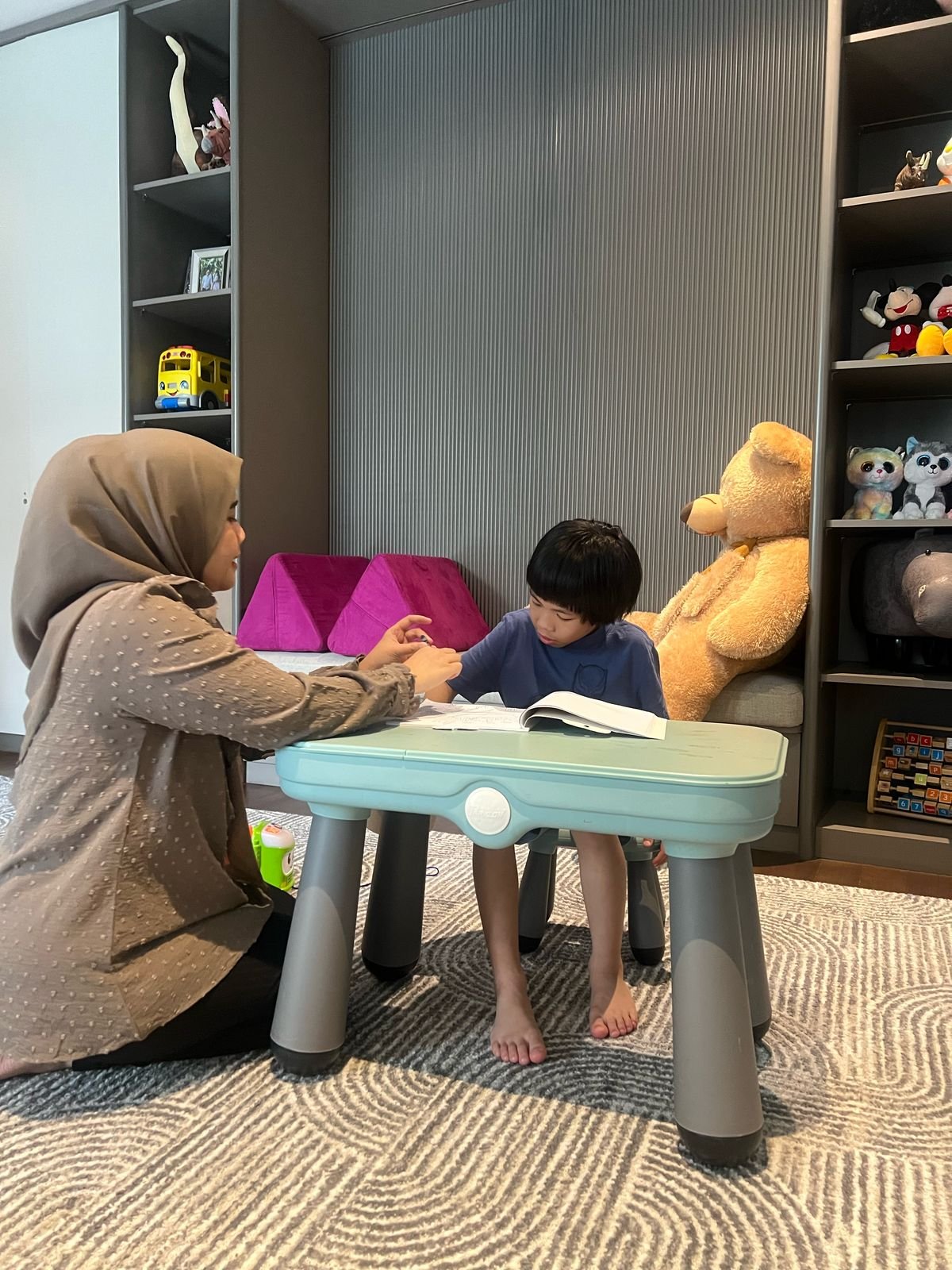Balancing Acts: Parenting Autism Amid Rising Costs and Endless Care

Introduction
People often say that raising children is priceless. For families raising a child with autism, the experience is indeed priceless—but also undeniably pricey. Love may conquer much, but it doesn’t settle therapy invoices or cover tuition fees.
Behind the smiles of countless families are silent calculations and sleepless nights, as parents figure out how to pay for the help their child needs while still managing life’s other demands. Especially in Indonesia, where government support is limited and insurance rarely covers autism-related expenses, families find themselves carrying this load largely alone.
I know this firsthand. My son Jayden is autistic and non-verbal. Our journey has been filled with love, pride, and countless lessons—but also moments of anxiety over how to ensure he gets the care he deserves, while still preserving our family’s future.
The Cost of Therapies: The Relentless Meter
Therapies are not luxuries; they’re essential building blocks for many autistic children. Speech therapy, occupational therapy, behavioral therapy like ABA, and sensory integration sessions all help children find their footing in a world that can feel overwhelming.
In Indonesia, therapy sessions typically cost between IDR 250,000 and IDR 750,000 each. Multiply that by several sessions a week across different types of therapy, and monthly expenses quickly climb to IDR 6,000,000 or even over IDR 15,000,000. For children who require more intensive schedules, the figure can be much higher.
From my own experience, the costs don’t stop with therapy fees. There are assessments, follow-up consultations, and specialized materials—all of which quietly add up. The meter keeps running. And here’s the hard truth: most health insurance plans in Indonesia exclude autism therapies and related supports. Parents pay out-of-pocket, often without any safety net.
Medical Costs: The Silent Drain
Medical care adds yet another layer of financial pressure. Many autistic children have additional health challenges. Research shows that:
- 30%–50% of autistic individuals have gastrointestinal disorders.
- 20%–30% experience epilepsy.
- Around 40%–50% face significant sleep disturbances.
Each additional diagnosis means more doctor appointments, medication, and sometimes hospital stays. A single visit to a neurologist in a private Indonesian hospital can cost anywhere from IDR 600,000 to IDR 1,000,000, and that’s before any tests or follow-ups.
These costs creep in quietly but become significant over time.
Education: A Maze of Costs and Uncertainty
Schooling is another battleground. While public schools in Indonesia technically accept autistic students, many lack the staff or training to truly support them. Parents often face two tough choices:
- Leave their child in a public school with minimal support, risking stagnation or regression.
- Move their child to a private school specializing in special education (SPED).
Private SPED schools, though, are neither easy to get into nor affordable. Many have strict admission criteria, limited resources, and long waitlists. And if your child does get in, the price tag can be steep. Private SPED schools in Indonesia often charge upwards of IDR 10,000,000 a month—sometimes far more. That’s at least IDR 120,000,000 a year, the price of a small city car.
Meanwhile, neurotypical siblings still need schooling, extracurricular activities, and the occasional new shoes when they inevitably outgrow last semester’s pair. Those expenses don’t pause just because a sibling needs more.
Speaking as a parent, I feel this daily push and pull. How do we secure the therapies and schooling Jayden needs, while also ensuring Assya has the opportunities she deserves? It’s a delicate balance that never quite feels settled.
The Career Quandary: To Work or Not to Work
These relentless costs leave families facing a painful decision: should one parent leave work to become a full-time caregiver?
Leaving work can mean giving up not just a paycheck, but professional growth, retirement savings, and a piece of personal identity. For many middle-class families, it simply isn’t feasible. Two incomes are often essential just to keep up with therapy bills and school fees.
But staying in the workforce has its own price. Working parents often find themselves stretched to the limits, racing between office deadlines and therapy drop-offs, school meetings, or medical appointments. It’s a schedule so tight that even minor hiccups can feel catastrophic.

Middle-class families in Indonesia are stuck in a particular bind. They earn “too much” to qualify for government aid—though, let’s be honest, there’s not much aid to begin with—but not enough to handle the ongoing expenses without sacrificing savings or security.
Even with decades of experience in the corporate world, there are times when the math simply doesn’t add up for me. Therapy bills and school fees can start looking suspiciously similar to mortgage payments. It’s not a question of love—it’s a question of how to keep giving your child what they need without risking the family’s financial stability.
The Emotional Toll: The Guilt That Never Sleeps
Beyond the financial strain lies the hidden burden: guilt and constant worry.
Parents of autistic children often lie awake at night thinking:
- Am I working too much and missing moments I can never get back?
- Am I working too little and putting my family’s future at risk?
- Am I neglecting my neurotypical child while pouring so much into therapy and care?
Working parents carry a unique layer of guilt. Many feel a persistent ache for not being able to “equally” share the caregiving load. While one partner manages therapy sessions, meltdowns, and day-to-day routines, the working parent is often caught between work demands and heart-wrenching messages about crises unfolding at home.
I’ve felt this myself. There were periods when I was constantly on the road for work. I’d check into a hotel, open my phone, and find messages about Jayden having a rough day. I felt torn between my role as a father and my professional obligations. The guilt is real, and it doesn’t fade easily.
Research backs this up. Parents of autistic children often report stress levels comparable to combat veterans with PTSD. It’s not an exaggeration—it’s a reflection of living in constant high-alert mode, always bracing for the next challenge.
No Single Path Forward
Here’s one truth I’ve learned: there’s no single, perfect way to do this.
Every family’s circumstances are unique:
- Some have extended family who can help lighten the load.
- Some live in cities with better access to specialized services.
- Some have the financial means to afford private care, while many simply cannot.
For some families, there’s another option—hiring a nanny or trained caregiver to help with daily routines and therapies. This support can be a lifeline, offering a bit of breathing space and consistency for both the autistic child and the rest of the family. But of course, it comes at a cost. A trained nanny or caregiver in Indonesia can command a salary ranging from IDR 3,000,000 to IDR 8,000,000 per month or higher, depending on skills and experience. For many families already stretched thin, it’s yet another expense to weigh carefully.
In countries like Indonesia, where government programs are scarce and private care is expensive, the challenges are even steeper. Middle-class families, in particular, find themselves in a cruel dilemma—forced to choose between financial security and essential interventions that could dramatically shape their child’s future.
The Bottom Line
Raising a child with autism is not a tragedy. It’s a path filled with extraordinary love, resilience, and moments of unexpected joy. But it’s also true—and important to say out loud—that the financial and emotional costs are significant.
In Indonesia, where government support is limited and insurance companies often step aside, families are frequently left to navigate this journey on their own. It’s a reality that deserves more understanding, empathy, and action from society at large.

It has become my personal mission to share and advocate for autism, lending a voice to others who care to listen. I believe these conversations matter deeply. Only by speaking openly about the costs, the struggles, and the quiet victories can we build a society where every autistic individual—and every family—has the chance to thrive.
So if you meet a parent raising an autistic child, know that they’re not simply doing “normal parenting.” They’re carrying an invisible weight—managing therapy schedules, medical bills, and the delicate balance of giving every child in the family their fair share of hope and possibility. And if they seem a bit distracted, chances are they’re calculating whether next month’s therapy sessions can coexist with school fees and still leave enough for groceries.
This is Autism Raw
This is our Unscripted Journey.
